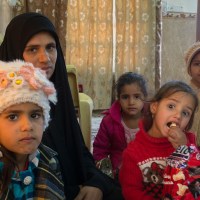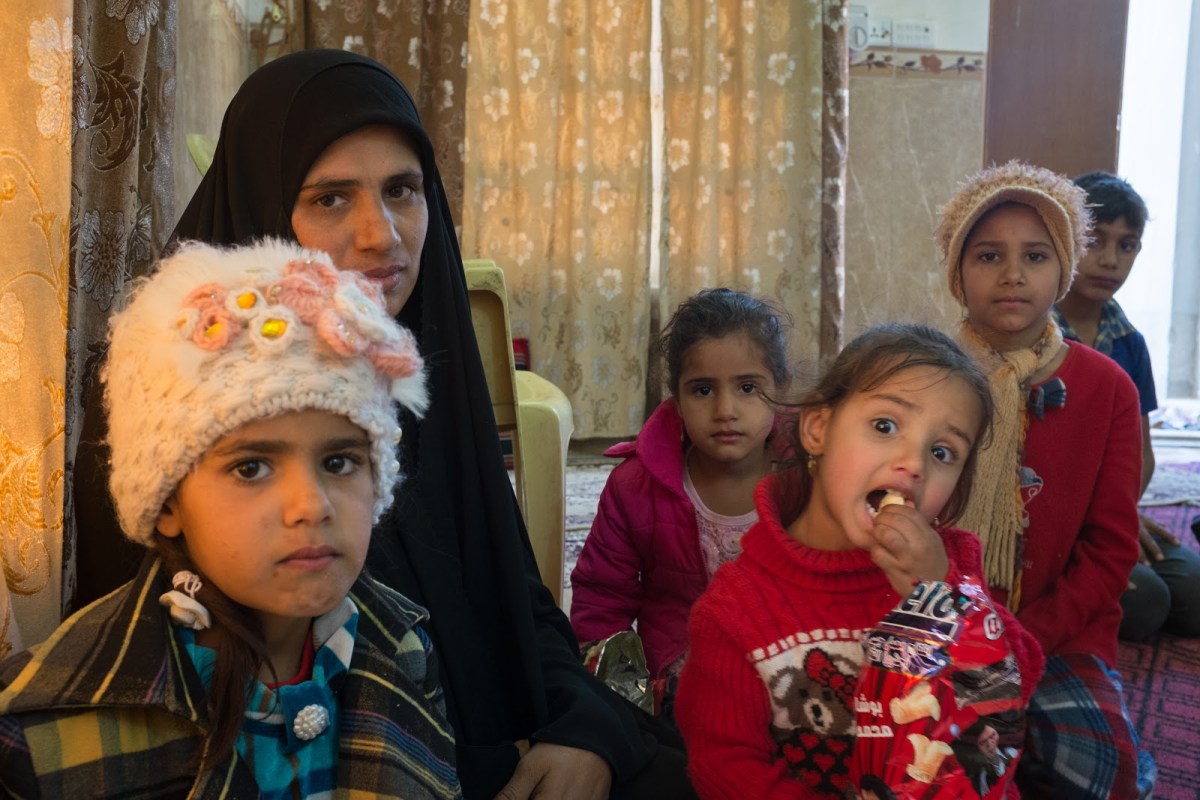There are things a woman knows. Instinctively. In her gut. When Manal’s husband, Bashir, told her he would join the military to fight against ISIS, she begged him not to go.
There were many reasons. They were early in their married life together, with four young daughters. They didn’t have a house of their own. If he died, she argued, he would leave the entire burden of their family on her shoulders.
“How can I not go?” Manal’s husband argued back. There were men both younger and older than him fighting to protect their families and their country. Why should he not go and do his duty?
It was ultimately Bashir’s decision, whether to stay or to go. He insisted it was something he had to do.
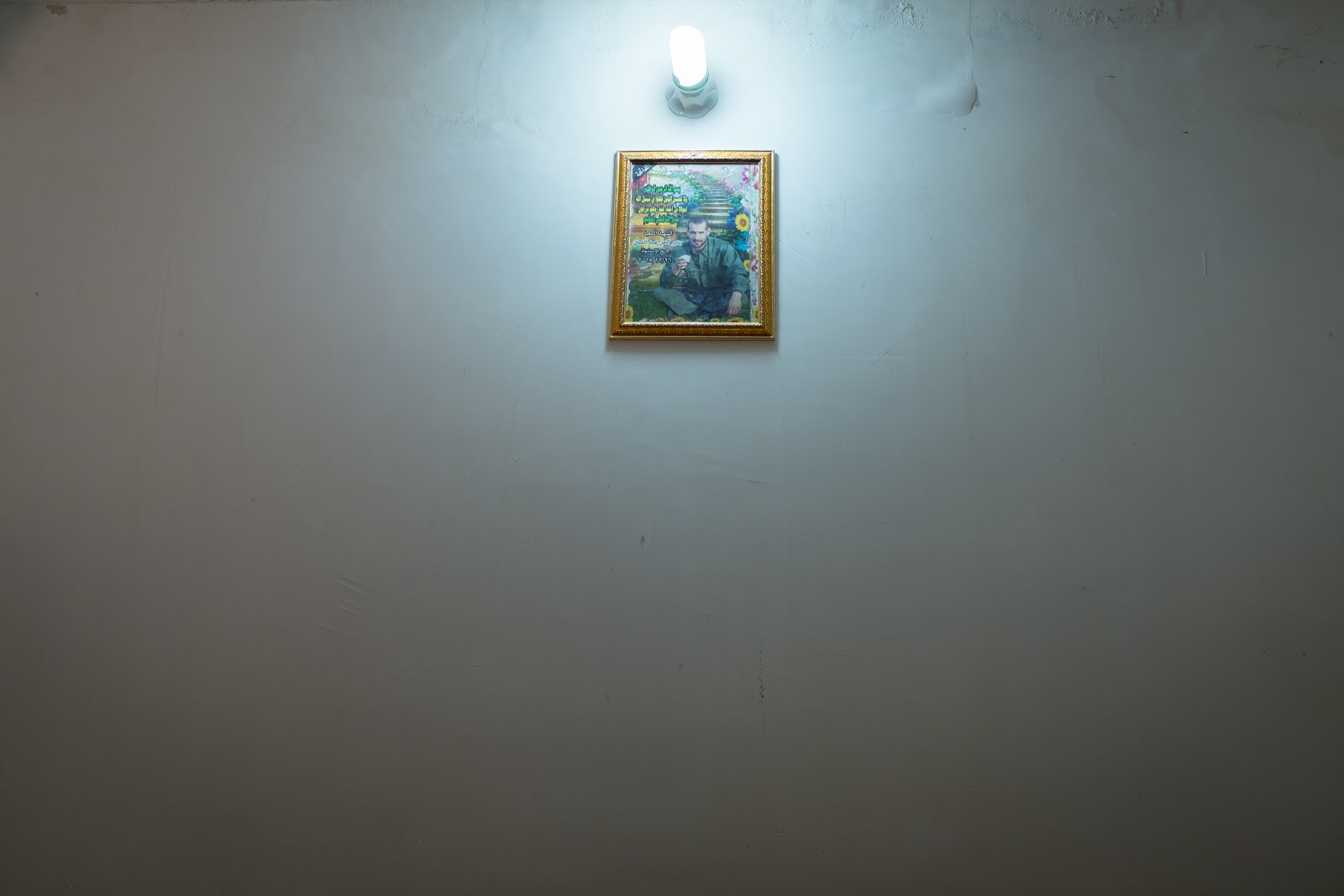
We sit and talk in Manal’s father-in-law’s home, in a small rural village. That’s where Manal and her girls live. The room is bare of decoration except for a verse of the Quran over the door and a memorial photo of Bashir on the wall opposite.
Bashir was wounded twice in battle, but that didn’t change his mind about serving. He was 30 years old when he lost his life in the war against ISIS, and left Manal a widow, just as she’d feared.
A relative brings a phone out of his pocket and shows us footage from the last day Bashir was alive. A fellow soldier in his unit walked through their location, making a video with his phone.
Bashir wasn’t filmed, but this shaky video still gives his family a strong feeling of connection to him. Manal turns her head away—three years later, she still can’t bear to watch. It’s hard not to imagine that every time Bashir’s family watches the video it’s like picking at a scab that doesn’t heal.
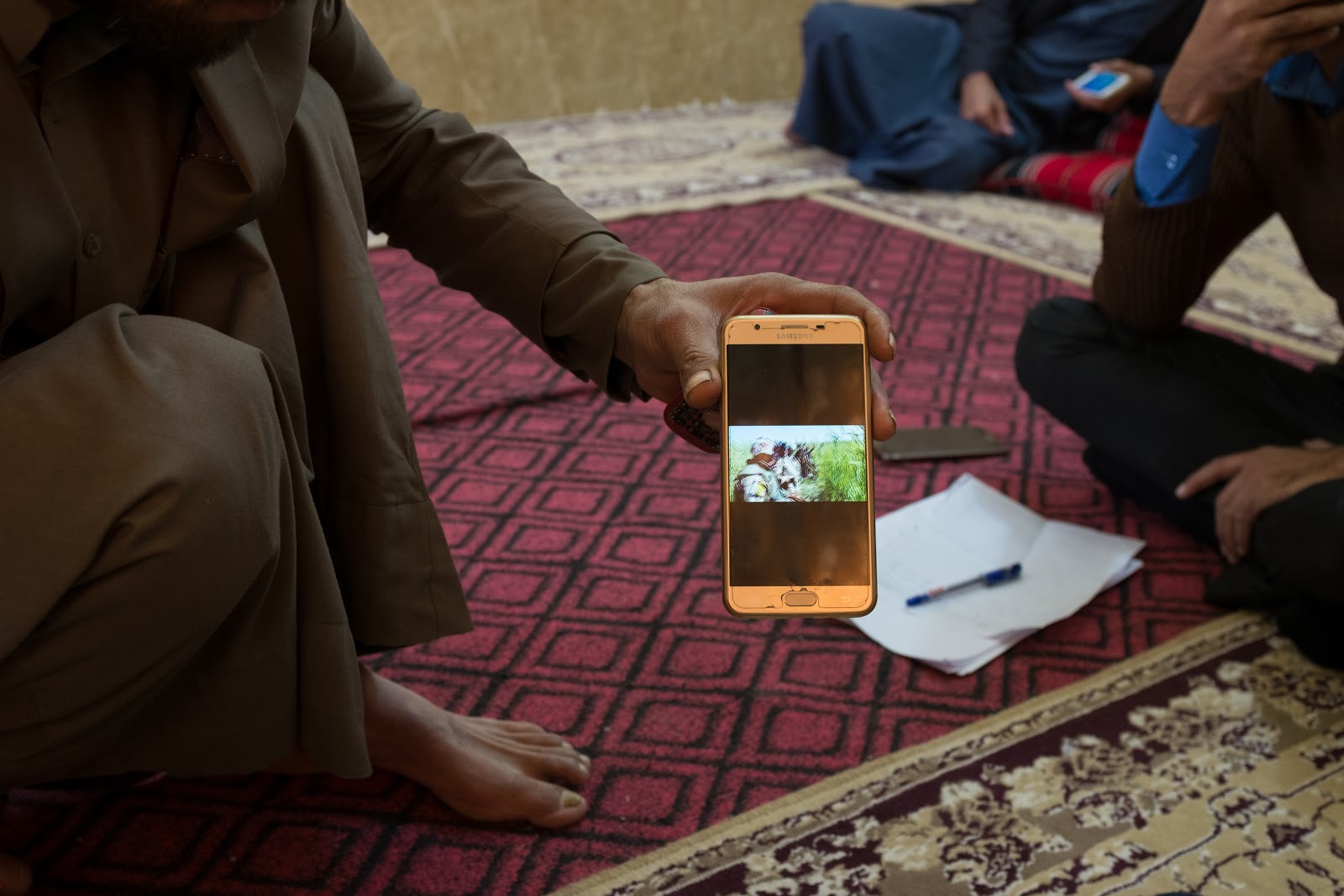
Manal misses Bashir. She misses what they could have had together. But she is also really clear on how fortunate she is.
She and her girls are fortunate to have a place to live. Culturally, a widow here is expected to live with her husband’s family, but practically… it doesn’t always work out that way. Some widows are absolutely destitute because the social fabric of their community has broken down.
Manal knows she was fortunate to go to school until the sixth grade. She grew up in a city nearby and had access to a good education. 
Even though she and her girls live a rural life, very different from her own childhood, Manal knows the value of education and is committed to making sure her daughters stay in school.
Manal also feels fortunate to have been given the chance to run a small business of her own, to raise sheep, thanks to funds you provided.
Raising sheep is new to Manal, but she’s in the perfect spot for it. Her father-in-law’s family used to raise sheep, so they are sharing their experience with her. Their home is near lush fields owned by their extended family—perfect grazing land to keep the sheep well fed and strong. She has a nephew (pictured at the top of this post) who takes the sheep out to pasture.
And Manal has a shrewd business plan. She buys her sheep young, raises them, breeds them, and then sells them when they are grown. This way she’s able to grow her flock at a reasonable price.
She is taking the long view with her business, patiently growing her flock into something large enough to support her family over time.
Manal’s story is like that of so many women—how do you move forward when nothing turned out like you thought it would? In Manal’s case, a few key, caring people made all the difference.
Her husband’s family gave her a place to raise her children.
And you gave her the means to prepare for their future.
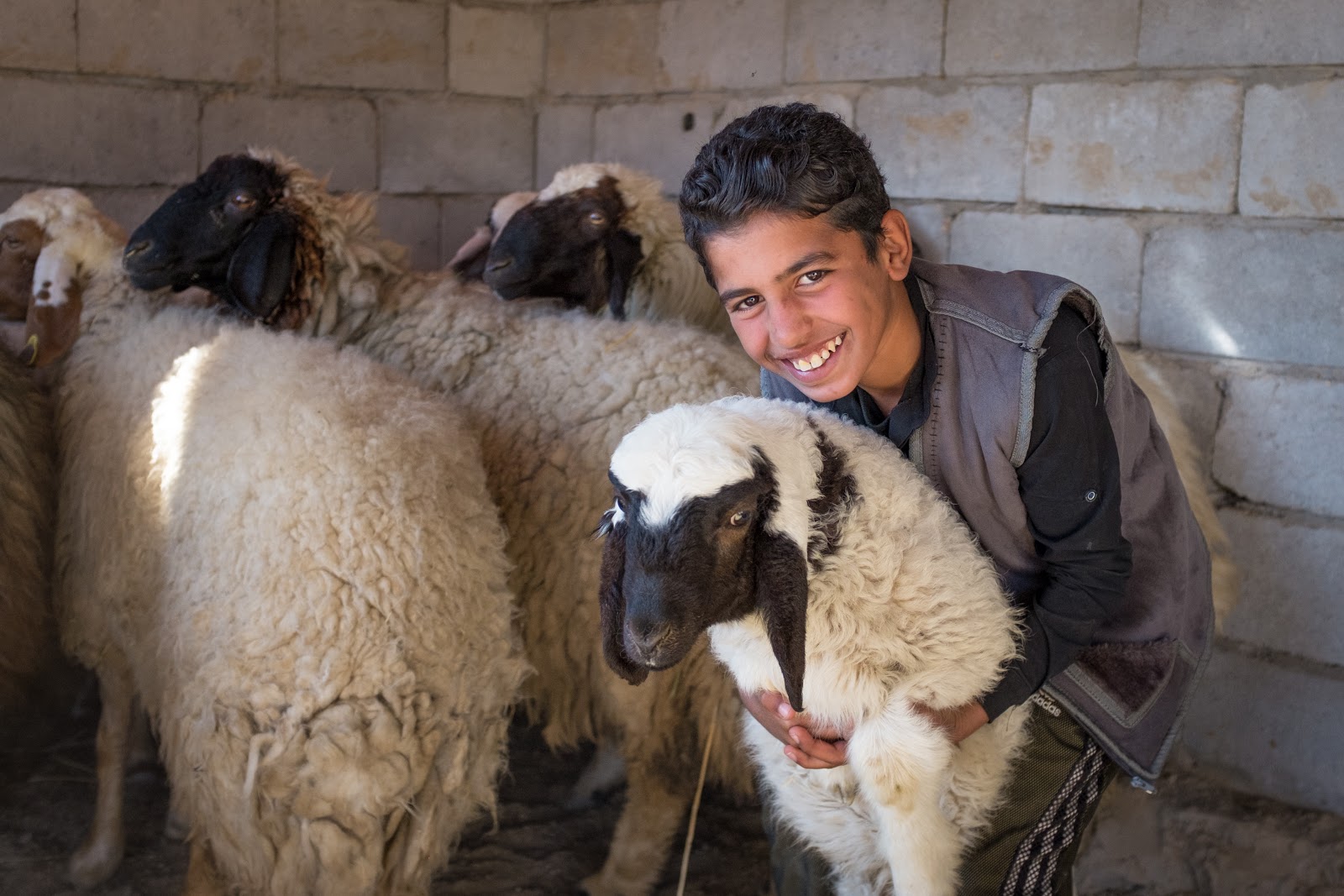
Families like Manal’s continue to deal with the staggering cost of the war against ISIS. Give them what they need to move forward and build a new life after war.

